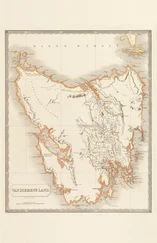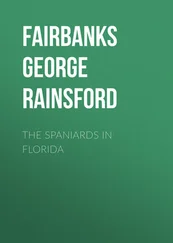Joshua Giddings - The Exiles of Florida
Здесь есть возможность читать онлайн «Joshua Giddings - The Exiles of Florida» — ознакомительный отрывок электронной книги совершенно бесплатно, а после прочтения отрывка купить полную версию. В некоторых случаях можно слушать аудио, скачать через торрент в формате fb2 и присутствует краткое содержание. Жанр: foreign_antique, foreign_prose, на английском языке. Описание произведения, (предисловие) а так же отзывы посетителей доступны на портале библиотеки ЛибКат.
- Название:The Exiles of Florida
- Автор:
- Жанр:
- Год:неизвестен
- ISBN:нет данных
- Рейтинг книги:5 / 5. Голосов: 1
-
Избранное:Добавить в избранное
- Отзывы:
-
Ваша оценка:
- 100
- 1
- 2
- 3
- 4
- 5
The Exiles of Florida: краткое содержание, описание и аннотация
Предлагаем к чтению аннотацию, описание, краткое содержание или предисловие (зависит от того, что написал сам автор книги «The Exiles of Florida»). Если вы не нашли необходимую информацию о книге — напишите в комментариях, мы постараемся отыскать её.
The Exiles of Florida — читать онлайн ознакомительный отрывок
Ниже представлен текст книги, разбитый по страницам. Система сохранения места последней прочитанной страницы, позволяет с удобством читать онлайн бесплатно книгу «The Exiles of Florida», без необходимости каждый раз заново искать на чём Вы остановились. Поставьте закладку, и сможете в любой момент перейти на страницу, на которой закончили чтение.
Интервал:
Закладка:
The slaveholders of Georgia, who had so long pressed their claims for fugitive slaves, now became more clamorous. They saw, with intense interest, the pertinacity with which the Executive had pressed the claims of those who lost slaves, in the then recent war with England. Under the Treaty of Ghent, the President insisted upon full indemnity to those whose slaves had left the country, under British aid; and when the English ministry refused, and insisted upon the same construction as that placed upon the treaty of 1783, which contained the same words, the American Executive refused, and the question was referred to the umpirage of the Autocrat of Russia, who held an entire nation in slavery, and could not be expected to decide in any other manner, than that most favorable to the institution. 48 48 The people of the free States should understand, that almost every question touching slavery which has arisen between our Government and that of England, the latter has yielded, since the formation of Jay’s Treaty in 1795. The payment for slaves who were shipwrecked on board the Comet, the Encomium, and the Enterprise, and found freedom by being landed on British soil, constitute rare instances in which slaveholdlng arrogance has proved successful in the arts of diplomacy. The case of the Creole constitutes another admirable illustration of successful effrontery. In this case, the slaves took possession of the ship, guided it to Nassau, a British Island, went on shore and became free. The officers of the slave ship demanded that the British authorities should seize the negroes, and return them to the ship. They refused. Daniel Webster, Secretary of State, became the voluntary Agent, Attorney and Solicitor, for the slave dealers, who should have been hanged, instead of receiving the encouragement of our Government. But the subject was submitted to the umpirage of a man, said to have once lived in Boston, who, principally upon the authority of Mr. Webster, decided that the people of the British government should pay the slave dealers for these parents and children; and after fifteen years of continued effort, the money was obtained.
The influence of the slave power having increased so greatly since 1796, as to induce the British Government to change its policy, adopted at the framing of Jay’s Treaty, was now believed competent to compel the Creek Indians to comply with the treaties of New York and Colerain. A quarter of a century had passed, since the signing of the last of these treaties, and they had been forgotten by many; but the people of the free States, and their Representatives and Senators in Congress, had quietly submitted to this prostitution of our national character and influence, and none appeared to doubt the propriety of continuing these efforts.
Georgia now demanded of the Federal Government a new treaty with the Creek Indians, 49 49 Vide Letter from the Secretary of War to Messrs. Plckens and Flournoy, August 8, 1820. Am. State Papers, Vol. VI, p. 249.
in order to obtain from them indemnity for the slaves she had lost, subsequent to the close of the Revolution, and prior to the act of 1802. To this demand the Federal Executive assented. The Secretary of War, Mr. Calhoun, with his attachment to the institution, could do no less than to exert what influence he was able to wield, in assisting Georgia to obtain a compensation for the loss of her slaves. On him devolved the burthen of selecting commissioners to negotiate the contemplated treaty. Careful to place the subject in the hands of men who would be likely to wield their power for the benefit of the “peculiar institution,” he appointed General Andrew Pickens of his own State, and General Thomas Flournoy of Georgia, to conduct the negotiation.
In his letters of instruction to those gentlemen, he was careful to inform them that the treaty was to be negotiated for the benefit of Georgia ; 50 50 Vide Letter of the Secretary of War to Gen. Flournoy, of the 19th of October, 1820. Ibid, 250.
that she would also appoint commissioners to attend the negotiation, and watch over the interests of her people. The commissioners proceeded to make arrangements for the treaty. They appointed the time and place for holding it; employed an agent to furnish the requisite supplies, and made arrangements for the necessary payments. At this point a correspondence arose between them and the commissioners of Georgia, who assumed to dictate the terms on which the treaty was to be founded. The commissioners of the United States, finding those of Georgia inclined to dictate the course of action which they were to pursue, were unwilling to submit to such dictation, and reported the difficulty to the Secretary of War; while the commissioners on the part of Georgia, feeling perfect confidence in the devotion of that officer to the interests of slavery, made their report of the matter to him also. 51 51 Vide Papers transmitted to Congress, in connection with the Treaty of “Indian Spring.” Am. State Papers, “Indian Affairs,” Vol. I, No. 174.
The Secretary returned an answer, reproving the commissioners whom he had himself appointed, so severely for their refusal to obey the dictation of those appointed by Georgia, that they both immediately resigned their offices, appearing to feel that their own self-respect must be compromised by acting under the instruction of the State Commissioners. 52 52 Ibid.
Apparently determined to appoint no man who should again prove refractory, the Executive – probably at the instance of the Secretary of War – next selected as commissioner, in the place of Mr. Flournoy, David Meriwether, who had, up to the time of receiving the appointment, acted as commissioner on the part of Georgia. At the request of the Secretary of War, he resigned his office of commissioner on behalf of the State, and accepted the appointment from the Federal Government. Hon. D. M. Forney, of North Carolina, was selected as the other commissioner, in place of Mr. Pickens. These commissioners were expressly instructed to assist the State of Georgia in obtaining the objects for which she was striving. 53 53 Ibid. Letter of Instructions contained in the papers referred to on preceding page.
These preliminary arrangements could not fail to foreshadow the character of the treaty negotiated under such auspices. Anticipating no other motive for the treaty than the settlement of the boundary between the State of Georgia and the Creeks, the chiefs, head-men and principal warriors of the tribe assembled at the time and place appointed. After the ordinary formalities on such occasions, the commissioners on the part of the United States opened the business by simply stating, that the people of Georgia complained to the President that the Creeks had not returned the property (negroes, cattle and horses), which they were under obligations to return to their owners in Georgia, by the treaties of New York and Colerain.
The commissioners on the part of Georgia now delivered their talk, saying, that by the treaty of Augusta (1783), of Galphinton (1785), and of Shoulderbone (1786), the Creeks had agreed to return to their owners, negroes who had left their masters, and other property; that these treaties were all made before the formation of the government of the United States under their present Constitution; but they were ratified by the treaty of New York (1790), and of Colerain (1796), made with the United States, and Georgia now demanded compensation for the loss of her negroes and other property.
On the following day, General McIntosh, principal chief of the Creeks, replied, that he came to meet the commissioners of the United States, and had no expectation of meeting those of Georgia; nor had he or his friends any idea that such claims were to be presented. That the chief, McGillivray, when he returned, after the treaty of New York, informed them that they were to deliver up such negroes as were then in the nation ; that they were to pay for none who had removed or died; that they all so understood that treaty, and that nothing was then said about any other claims than for negroes ; that the prisoners , both black and white, were delivered up under the treaty of New York; that the claims now presented were also presented at the treaty of Colerain, in 1796, but the Creeks then absolutely refused to acknowledge any further obligation than that contained in the treaty of New York, and by that they were under obligation to surrender no property except persons held as prisoners, and negroes then in the nation. That many of these negroes were carried away by the British, during the war of 1812; that others were in the fort at Appalachicola, when he and his warriors went with Colonel Clinch and blew it up, and killed nearly all who were in it; and the others were with the Seminoles , and not with the Creeks.
Читать дальшеИнтервал:
Закладка:
Похожие книги на «The Exiles of Florida»
Представляем Вашему вниманию похожие книги на «The Exiles of Florida» списком для выбора. Мы отобрали схожую по названию и смыслу литературу в надежде предоставить читателям больше вариантов отыскать новые, интересные, ещё непрочитанные произведения.
Обсуждение, отзывы о книге «The Exiles of Florida» и просто собственные мнения читателей. Оставьте ваши комментарии, напишите, что Вы думаете о произведении, его смысле или главных героях. Укажите что конкретно понравилось, а что нет, и почему Вы так считаете.












